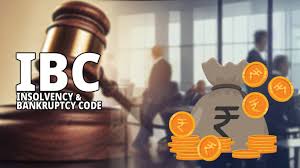CHAKRAVARTTI, C.J. - We have had some difficulty in following the facts of this case, because it does not appear at all clear what the assesses contention regarding the facts was and on what basis they wanted the questions of law to be considered. In the course of the argument I happened to observe that the assessees appeared to me to have been merely kite flying and Mr. Mitra, who was appearing for them before us, frankly confessed that as regards comprehending his clients case before the authorities below, he did not find himself in a better position.
The assessees are a private limited company. It appears that during the accounting year ending in December, 1946, they became minded to acquire the managing agency of the Madhusudan Mills Limited, Bombay, and opened negotiations with the then managing agents, Messrs. Amersey Damodar. It is stated in the statement of case that the negotiations were for the purchase of the managing agency rights along with 80 per cent. of the share capital of the Mills concerned. The arrangements for the purchase of the shares and those for the purchase of the managing agency were entered into at the same time, but the purchase of the shares was concluded in June, 1946, while, because of certain formalities, which had not to be gone through the managing agency rights was not concluded till the 19th August, 1946. This much of the facts is clear.
The next transaction to which reference ended be made is a loan taken by the assesses from the Bank of Baroda and the Central Bank of India upon security furnished to the banks in the shape of the shares acquired. I have described the transaction in general terms, because the assesses seem to have done everything in their power before the authorities below to shroud it in obscurity. It seems to have been said at one time that the loans were taken for the purpose of securing funds with which the price of both the managing agency rights and the shares was to be paid for and on that dual basis, arguments appear to have been advanced before the Appellate Tribunal. The statement of case however, proceeds mainly on the basis that the loans was taken for the purpose of the purchase of the managing agency rights alone and that was the basis to which Mr. Mitra said he would adhere. The statement of case, however, also contains some reference to an argument by the assessees that the shares had been purchased in the course of a share-dealing transaction and it is not easy to see what the relevance of that contention was, unless the assessees were still contending that the money which they borrowed from the banks was for the purpose of purchasing the shares as well. Be that as it may, as the learned counsel for the assessees invited us to treat the case as one where the loan was taken only for the purpose of acquiring the managing agency rights and since that appears to be the real basis of the statement of case, we shall deal with the reference on that footing.
The transaction with the banks, therefore, was one by which the banks lent and the assessees borrowed a certain sum of money with which the assessees were to pay the price of the managing agency rights. In order to secure the loans, the assessees pledged the shares with the banks and according to the usual practice of the banks, they got the shares transferred and registered in their own names. The stamp duty and the registration fee for the transfer of the shares were, however, borne by the assessees as is also the usual practice and the cost amounted to Rs. 1,08,421. It was this sum which the assessees claimed as a revenue expense and which has been disallowed by the authorities below.
The question referred to this Court is as follows :
"Whether on the facts and in the circumstances of the case, the expenditure of Rs. 1,08,421 has been rightly held as a capital expenditure and as such not deductible u/s 10 (2) (xv) of the Indian Income Tax Act."
The view taken by the Tribunal was that the amount spent on the purchase of the managing agency had really accepted that position inasmuch as they had been disallowed the amount of interest on the loan and had not appealed against the disallowance. Mr. Mitra pointed out that there could be no estoppel in matters of Income Tax, but at the same time he said that if by the amount spent for purchasing the managing agency rights was meant the amount actually paid as the price of those rights, he would not disagree with the view taken by the Tribunal. What Mr. Mitra still contended was that while the amount actually borrowed rights might be a capital expense, the incidental charges incurred in securing the lean could not be regarded as such expenses, as they had no brought in any asset of an enduring character. It will be better if I state more fully what Mr. Mitras argument was.
It appears that the basis of Mr. Mitras contention is really an argument advanced on behalf of his clients before the Appellate Assistant Commissioner. As before that Officer, so before us it was urged on behalf of the assessees that their general business was to function as managing agents of different companies and, therefore, they could be said to be managing agents by profession if such an expression can at all be appropriately used in regard to a company. The next step in the argument was that the assessees, carrying on the business of functioning as managing agencies, wanted to acquire another capital asset for their business namely, another managing agency and the expenses incurred by them in securing such an asset would be a revenue expense being expenses incurred in the course of the expansion of the business, in so far as those expenses did not result in the procurement of any asset an enduring character. The concrete argument built on that general proposition was that the stamp duty and registration fee were not paid for the purpose of acquiring the loan which had been obtained in order that the managing agency rights might be paid for. So far as the price actually paid for the managing agency rights was concerned, it had resulted in the acquisition of a capital asset, namely the managing agency rights but so far as the stamp duty and registration fee paid for the transfer of the shares were concerned, they had brought in nothing but had merely gone out of the coffers of the assessees without bringing back anything in their lieu and stead. It was, therefore, contended that having been spent for the purpose and in the course of expanding the business of functioning as managing agents and not having brought in any asset of enduring value, the stamp duty and the registration fee could reasonably be claimed as revenue expenses and that to treat as capital expenses would be erroneous.
Ingenious as this argument was, I find myself unable to accept it. In my view the refinements by which Mr. Mitra reached the result he was contending for will not stand scrutiny. If the assessees would not furnish security to the banks, they would get no loans; if they could get no loans they would both be able to purchase the managing agency rights and if they did not pay the stamp duty and the registration fee, they would not be able to furnish security, would be unable to purchase the managing agency rights. It seems to me to be patent that the expenditure incurred on account of the stamp duty and the registration fee, for that is the usual practice. But whether the sum was deducted from the amount of the loan or whether it was paid independently, it was spent for and directed towards the ultimate object of acquiring the managing agency rights and if it had not been spent, the managing agency rights would not have been acquired. I do not, therefore, think that Mr. Mitra can make any point out of the distance of one degree at which the expense concerned stands from the actual consideration paid. In my view, the Tribunal was right in holding that the amount was a capital expense and right in refusing the allowance claimed.
It is only necessary to place on record that Mr. Mitra expressly abandoned what has been described in the appellate order as an alternative case, based somewhat obscurely either on a contention that the assessees were share-dealers and that the pledging of the shares with the banks was a transaction in the course of share-dealing or on the contention that the loans were procured also for the purpose of paying for the shares. References to both these contentions are to be found in the shares. References to both these contentions are to be found in the statement of case as also in the appellate order. Mr. Mitra did not wish us to consider them and in my view, in deciding not to ask us to spend our time on those contentions, he made a wise choice.
For the reasons given above, the answer to the question referred must in my view be in the affirmative.
The Commissioner of Income Tax will be entitled to his costs of this reference.
LAHIRI, J. - I agree.
Reference answered in the affirmative.

